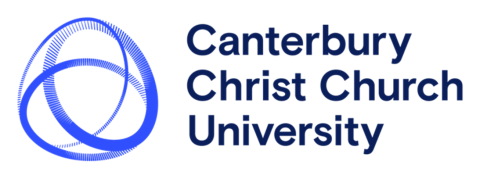Salomons - CCCU
School of Psychology and Life Sciences | Faculty of Science, Engineering and Social Sciences
Course code:
2300
Course length:
3 years (full-time)
Phone:
01227 927075
Administration email:
[email protected]Social media:
Training with us
Trainee Support
The Programme sees the personal development of trainees as a vital element of their training as Clinical Psychologists. It is recognised that the demand placed on trainees through the experience of training can be considerable and that it is necessary and appropriate for trainees to seek support. It is unlikely that any single system will meet all needs, but a variety of means has evolved as the Programme has developed, to provide opportunities for personal development and support. In addition to placement visits, trainees also meet once a year with their managers to review their development and learning on the Programme. This review enables all aspects of training to be appraised in an integrated way and helps trainees to identify clear development goals. The review also provides trainees with an opportunity to feedback individually about the Programme and, thereby, highlight issues which can then be addressed.
Reflective Practitioner Group meetings, made up of a small number of trainees, are held approximately fortnightly during term time. These are facilitated by experienced group facilitators external to the Programme. The groups are an integral part of the Programme and provide a forum for reflection, dialogue, and personal experiential learning, throughout the course of training.
A 'buddy system' is also in operation, whereby each trainee will be paired with a trainee from the year group above to offer support.
Programme Philosophy
We aim to train clinical psychologists to work in Health and Social Care settings in a way which ensures that they make a real difference to services. The Programme fulfils the standards of education and training required by the UK Health Care Professions Council (HCPC) and successful completion of the Programme ensures that trainees are eligible to apply for registration with the HCPC as a Clinical Psychologist. Additionally, the Programme is accredited by the British Psychological Society (BPS).
The model adopted within Salomons conceptualises the clinical psychologist as a critical, reflective, anti-discriminatory, scientist practitioner. This means training clinical psychologists who are both able to use the best available knowledge and skills, whilst also being able to reflect on and critically evaluate their own, the professions and wider society’s influence on services and practice. Such values are fully reflected by the staff team who are continuously developing the programme to take account of recent advances in Health and Social Care, Clinical Psychology and Education, to ensure that the Programme remains cutting edge, and responsive to NHS and service user, family and carer needs. In line with these core values, experts by experience and carers are involved in all aspects of the running and delivery of the programme, including teaching, assessment of academic submissions, programme management, selection, and research.
The Programme places significant importance on the value of exposing trainees to a diversity of therapeutic models. To this end, trainees receive the opportunity for a breadth of experience in order to understand the theoretical and research underpinnings, and the practical application, of several mainstream psychological models. The programme has accreditation from the Association of Family Therapy, so trainees who would like to, can achieve a Foundation (non-practicing level) in systemic therapy over the course of the training.
Priority is given to enabling trainees to work in multi-professional/agency contexts so that they learn to work collaboratively and effectively within services. Teamwork is essential to the configuration of services within a very rapidly changing NHS context. In line with the new opportunities and challenges created by these changes, we train clinical psychologists who are not only skilled in working within teams, but who will also develop the capabilities to consult to, and lead teams, as well as to take up supervisory, management and organisational roles within the changing environment of the NHS.
Values-based practice, as depicted within the NHS Constitution, is embedded in every aspect of delivery of the programme - from selection, through academic, clinical and research practice. The active commitment to its core values is fundamental to the ethos of the Salomons Programme.
General Background
The doctoral Programme sits within the Salomons Institute for Applied Psychology. The campus is based in the centre of Tunbridge Wells, very close to the shops, cafes, and other amenities of this historic Kent town. There are excellent transport links, the Institute being close to both bus services and the mainline train station. There are frequent fast trains to London with a journey time of less than an hour.
Trainees on the Programme can choose from a wide variety of urban and rural locations in which to live, including London, Brighton, Hastings, and the towns and countryside of Kent and East Sussex. Many trainees travel regularly from Brighton and London (about 1 hour) and car shares are common.
In June 2018, the doctoral Clinical Psychology Programme underwent formal accreditation by the BPS. At this event it received full approval and accreditation with five commendations: for the quality of service user and carer involvement across the programme which was described as “trailblazing”, for the quality of both the Programme and administrative staff, for leading the field in the development of new placement opportunities within Public Health and, finally, for the level of support towards the Programme from senior management within the University.
The Programme in Clinical Psychology has two Programme Directors who shares responsibility for the management of the Programme with a senior management team consisting of a Clinical Director, Academic Director, Research Director, Partnerships Director, Admissions Director, and an Equality, Diversity and Inclusion Lead. In addition, the staff team comprises Clinical and Academic Tutors, Research Tutors and an Expert by Experience Co-ordinator. We have outstanding administrative support and library facilities. Trainees are represented and involved at all levels in the organisation of the Programme, including the selection of trainees.
Last updated:
2nd September 2024

